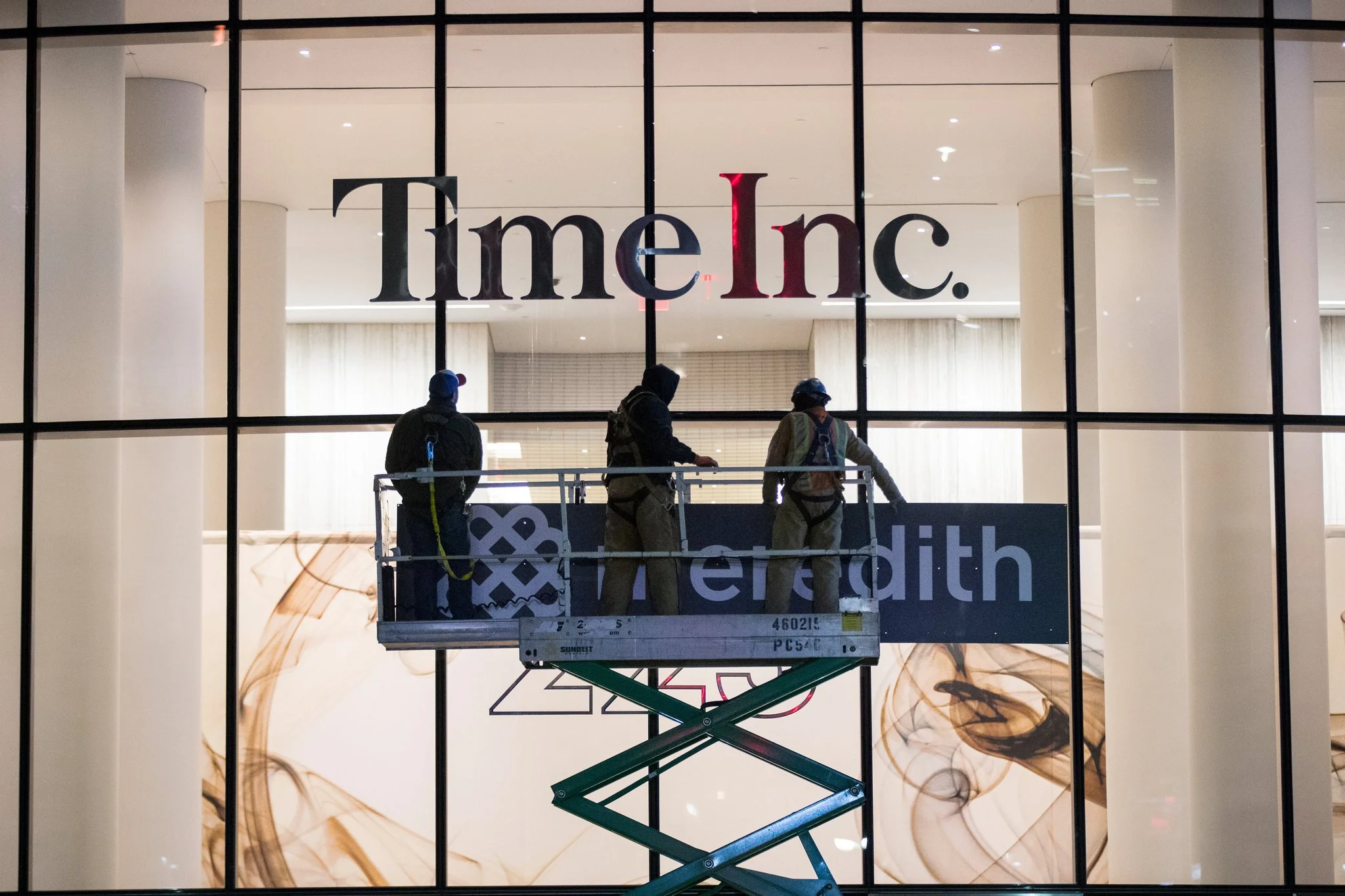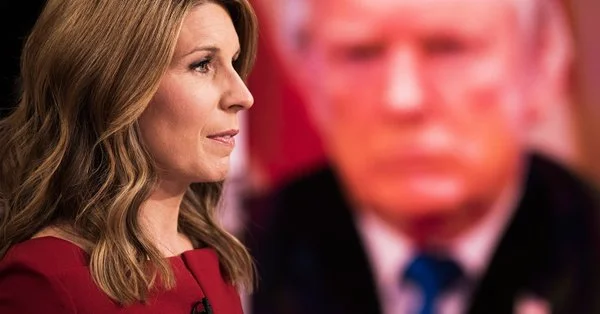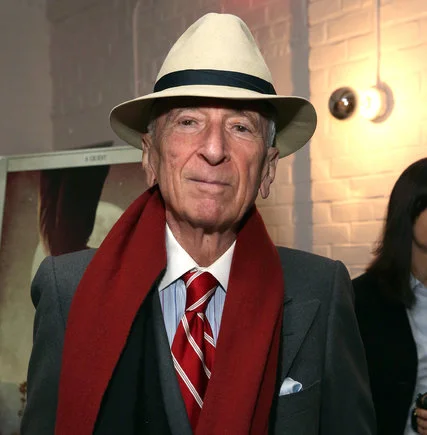Media
“It’s not lost on me,” Jason Bateman said, “personally, that the single most successful thing in my career is something that we never even thought was going to be a job.”
“She’s front and center, critical to everything NBC News will be doing, hopefully for a long time to come,” said Noah Oppenheim of Savannah Guthrie. “She does have this extraordinary expertise and aptitude for the political stuff. But her range is broader than anyone’s. There isn’t a story I wouldn’t feel comfortable in saying that she could dominate covering.”
“I remember sitting next to Jeff Bewkes, the CEO of Time Warner, at an internal Time Inc. event that was celebrating journalists. And he asked what I had done before Fortune, and I said, ‘Oh, I worked at Goldman.’ And he looked at me like, why would I leave that to do this? And I thought, Uh-oh, it’s over.”
“I’m shooting over $1 billion worth of television shows,” Sheridan tells me. “That’s how much money they’ve trusted me with, and I have to go make more than that with the product I create. “Hopefully, I can ride off into the sunset before something tanks.”
“The whole ‘first thing’ is very nuanced for me,” Vega says. “I think about it in terms of my family. I think of my community. But I have to be very conscious about how much pressure I'm putting on myself. That can be an exhausting drumbeat to have to hit all the time. Sometimes it's just like, ‘Guys, we’ve got to fix this. It shouldn't be this hard. Where are the people? Why is it taking this long?'”
“It’s me owing it back to not just my network but to my community to do well,” Joy Reid says.
”I feel a burden—I feel the burden to do it right.”
“All the women are there because they’re the best at their job,” Nicolle Wallace said. “It’s this critical mass of women at the top of their fields and every one of them are having incredible success with the viewers and breaking stories.”
“Mad has always had a general mocking, class-clown approach to society’s ills, but sometimes there are things that we can’t ignore that are too serious to simply joke about,” Mr. Morrison wrote.
“These are big, big issues that we deal with,” Brian Michael Bendis said. “Truth, justice and the American way. These things are under siege. This is the world we live in. These are not absolute things anymore. These are things worth fighting for.”
Basically written off by many of his publishing peers when he left Random House nine years ago,
Mr. Rubin is back on top with Henry Holt. The reason? A certain book about the White House.
“I am the same on TV as a guest as I am as a host, as I was a White House communications director, as I was Jeb Bush’s spokesperson,” she said. “I don’t speak any differently. I don’t hold any different views ideologically. I don’t hold back.”
“You’re not able to breathe before you have people say, ‘What are you doing now?’” Mr. Ansari said. “But I just put the season out! I have some things in my own life I need to sort out! I’m in the middle of trying to figure out Season 34 of Aziz Ansari.”
“It seems like that guy watches a lot of porn,” Mr. Kaczynski said of the differences between him and his “Late Show” alter ego. “And I don’t live in a basement.”
“It is at once a search for Gould’s writings, a hunt for the truth about the man himself, and a searing study of Mitchell’s journalistic ethics. In the end, though, the book almost inevitably mirrors the randomness that defined Gould’s life and work.”
“Welcome home, darling,” Mrs. Talese said. “You’re all over Twitter.”
When the last presidential race was in its early stages, Katie Glueck was a senior at Northwestern University. Now covering the Ted Cruz campaign for Politico, Ms. Glueck, 26, belongs to a select group of millennial reporters who have a front-row seat to the greatest political show on earth.
The paper's buzzy front page is an agenda-setter on social media. But can that be a business model?
Roger Angell goes to work almost every day at The New Yorker, where he has been a writer and editor since 1956.
Yes, he knows exactly what he is. But he still can't help it. (And anyway, it's not quite what you think)
One winter evening, Brian Beutler, 28, a reporter for the online publication Talking Points Memo, sat with his friend and roommate Dave Weigel, 29, a political reporter for Slate and a contributor to MSNBC, at a coffee shop on U Street. Recovering from a cold as snow fell outside, Mr. Beutler spoke about his younger — well, relatively younger — days in the city.
To understand the shifting tectonics of American politics, look no further than cable's high priest of populism, Lou Dobbs.
Bono sweeps into the bathroom that sits outside his downtown lobbying office, which is his base of operation when he comes to Washington every so often to try to save Africa.
“That was my favorite,” Jayson Blair said. It was the morning of Monday, May 19, and the disgraced former New York Times reporter was curled in a butterfly chair in his sparsely furnished Brooklyn apartment. He was eating a bagel and talking about one of his many fabricated stories—his March 27 account, datelined Palestine, W.Va., of Pvt. Jessica Lynch’s family’s reaction to their daughter’s liberation in Iraq.
Hal McCoy expected to cover the Cincinnati Reds for the Dayton Daily News until he was called off to the Big Press Box in the Sky. But a lousy economy and a flagging newspaper industry benched him before his final inning. What can you say about a highly esteemed, exceptionally insightful, legally blind sportswriter? They don’t make ’em like that any more.
Bishop T. D. Jakes wants his flock not only to do good but to do well, and his brand of entrepreneurial spirituality has made him perhaps the most influential black leader in America today.
Last spring Anne Sweeney took charge of a "mess" of a network—ABC—that was buried in the ratings. Can a woman whose background is children's cable programming save a broadcast network with a history of management problems? To do so, she may just have to reinvent the television business
Should you tell your spouse about that fleeting infidelity fifteen years ago? Throw a baby shower for your pregnant-out-of-wedlock daughter? Amy Dickinson, the author of the syndicated advice column "Ask Amy," is the Chicago Tribune's successor to the great Ann Landers. And she can help—as our correspondent discovered
At 10:31 a.m. on June 5, staffers at The New York Times received an e-mail announcing a 10:30 a.m. meeting in the main part of the news room, near the national desk where the Pulitzer Prize winners are usually announced.




























Three months into his tenure as chief editor of The New York Times, Dean Baquet sat down on the black leather sofa in his third-floor office within the newspaper’s glass-and-steel headquarters in midtown Manhattan.